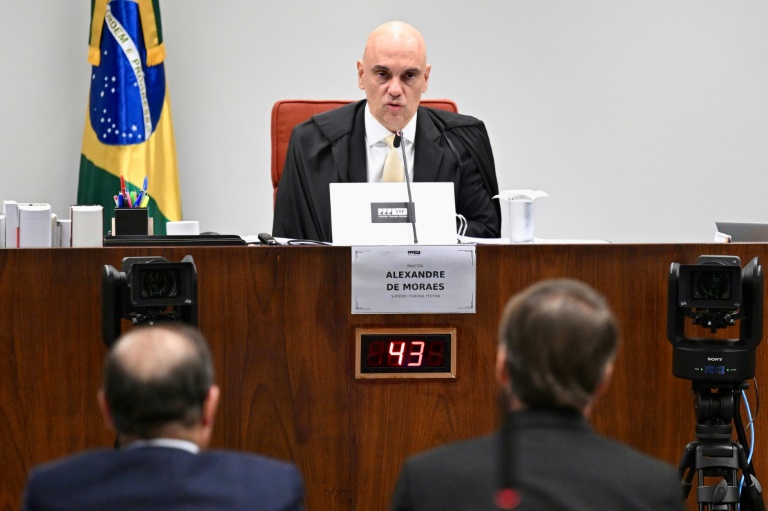The Trump administration has escalated its foreign policy reach, imposing significant tariffs and targeted sanctions on Brazil. This assertive move is directly linked to the ongoing trial of former Brazilian President Jair Bolsonaro, a staunch far-right ally, and specifically targets Supreme Court Justice Alexandre de Moraes, who is overseeing proceedings related to alleged coup attempts in Latin America’s largest economy.
President Donald Trump’s directive fulfills prior threats to leverage American economic power to influence Brazilian internal affairs, particularly what he has labeled a “witch hunt” against Bolsonaro. This unprecedented intervention marks a distinct departure from conventional trade relations, framing the measures in overtly political terms despite Brazil’s substantial trade surplus with the U.S.
The economic penalties and judicial sanctions are designed to exert immense pressure on Justice Moraes, a figure who has become both powerful and polarizing within Brazil’s political landscape. Moraes has consistently challenged the far-right, particularly clashing with Bolsonaro and his allies over issues of disinformation and alleged democratic infringements.
Official statements from the United States cited Brazil’s “unusual and extraordinary policies” as detrimental to U.S. companies, free speech rights, and broader U.S. foreign policy interests. Justice Moraes was explicitly named in these declarations, underscoring the specific focus of the American punitive actions.
Brazil’s immediate reaction to the sanctions was one of swift and furious condemnation. Attorney General Jorge Messias vehemently denounced the measures as “arbitrary” and “unjustifiable,” characterizing them as a grave assault on the nation’s sovereignty. President Luiz Inácio Lula da Silva had previously labeled Trump’s threats as “unacceptable blackmail.”
At the heart of the controversy lies Bolsonaro’s high-profile trial, where he stands accused of orchestrating a plot to remain in power after his 2022 electoral defeat to Lula. Prosecutors allege the conspiracy included plans to arrest, and potentially assassinate, key figures such as Lula, Vice President Geraldo Alckmin, and Justice Moraes himself.
Top U.S. officials, including Secretary of State Marco Rubio and Treasury Secretary Scott Bessent, publicly announced the sanctions against Moraes. Bessent accused the Brazilian justice of acting as “judge and jury in an unlawful witch hunt,” while Rubio cited “serious human rights abuses” and infringements on freedom of expression. These actions were reportedly taken under the authority of the Magnitsky Act.
The Brazilian judiciary has firmly indicated its intent to proceed with Bolsonaro’s prosecution, despite external pressures. Paradoxically, Trump’s intervention appears to have bolstered President Lula’s domestic popularity, as the Brazilian leader leverages the U.S. “interference” to foster a sense of national unity against perceived external threats.






Leave a Reply